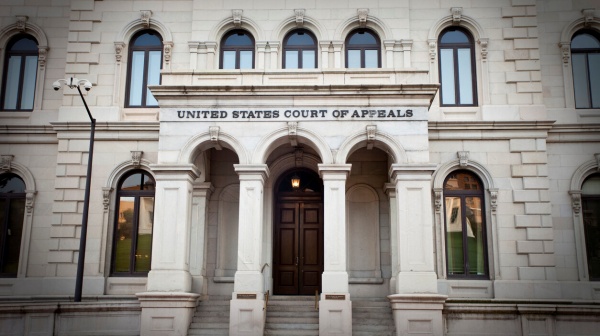By Larry . . . NARSOL is disappointed in the outcome of a GPS challenge just decided by the United States Court of Appeals for the Seventh Circuit from Wisconsin. The case is Benjamin Braam, Alton Antrim, and Dan Olszewski v. Kevin Carr, Wisconsin Secretary of Corrections.
Wisconsin Statute § 301.48(2)(a)(7) requires lifetime monitoring of offenders who have been convicted of a sex offense on two or more separate occasions. The plaintiffs sued alleging that the statute violates their rights under the Fourth Amendment. This tracking continues after the person has completed post-confinement supervision with no opportunity to have the obligation terminated. The tracking data is not monitored in real time; rather, officials review it every 24 hours or so to determine if an offender has been near a school, a playground, or another place that might raise a concern. The program is administered by the Secretary of the Wisconsin Department of Corrections; thus, the Secretary of Corrections was named as the defendant.
NARSOL feels strongly that it is unconstitutional to search a person and seize their private location data unless that person has had some due process. We see it as analogous to permitting search of a person, the person’s vehicle, or their home without any individualized determination that justifies the intrusion after the person is no longer under judicial control. Unfortunately, the Seventh Circuit does not agree with us.
The details provided by the court regarding the plaintiffs are these: Each of the plaintiffs has been convicted of multiple sex offenses involving children, offenses ranging from child molestation to possession of child pornography. The facts of each plaintiff should not matter because they served prison terms and completed their post-confinement supervision. It is only because they have been convicted of sex offenses on two or more separate occasions that they are subject to lifetime GPS monitoring.
The court noted that it has addressed this issue once before in Belleau v. Wall, 811 F.3d 929 (7th Cir. 2016). The Belleau Court upheld a subsection of the statute that imposes lifetime monitoring on sex offenders who have been released from post-prison civil commitment. Applying the Fourth Amendment’s reasonableness standard, they held that the government’s interest in deterring recidivism by these dangerous offenders outweighs the offenders’ diminished expectation of privacy. See Belleau at 935–36. In this case, the court stated, “We begin with the background Fourth Amendment principles. The Fourth Amendment prohibits ‘unreasonable searches,’ and as a general matter, warrantless searches are presumptively unreasonable.” In NARSOL’s opinion, this should have ended the inquiry because there is no warrant requirement. This is simply a blanket statute in Wisconsin that mandates that recidivist offenders be monitored for life. This did not end the inquiry because the United States Supreme Court held in Grady v. North Carolina, 575 U.S. 306 (2015), that warrantless GPS monitoring of sex offenders could be reasonable under the Fourth Amendment, depending on an evaluation of the nature and purpose of the search and the degree of intrusion on reasonable privacy expectations. The narrow question before the Court in Grady was whether satellite-based monitoring of recidivist sex offenders qualifies as a search. In a brief per curiam opinion, the Supreme Court said yes, but it went no further. That is, the Court did not decide whether this type of search is reasonable, but instead remanded for the North Carolina courts to make that determination, with the following instructions: “The Fourth Amendment prohibits only unreasonable searches. The reasonableness of a search depends on the totality of the circumstances, including the nature and purpose of the search and the extent to which the search intrudes upon reasonable privacy expectations.” See Grady at 310.
In Belleau, the Seventh Circuit had concluded that offenders like Belleau thus pose a significant danger to the public even after they are released from prison or civil commitment. Recognizing the difficulty of distinguishing Belleau from their case, the plaintiffs in this case sought to undermine its foundations. They argued that Packingham v. North Carolina calls Belleau into question. In Packingham the Supreme Court addressed a North Carolina statute that prohibited sex offenders from accessing websites of which minors are members. The Supreme Court held that the statute was impermissibly overbroad in violation of the First Amendment. NARSOL has consistently urged caution regarding Packingham. Too many want to read far more into Packingham than they should. In this case, the court stated, “The plaintiffs’ reliance on Packingham is misplaced. That case involved an application of the First Amendment’s overbreadth doctrine. This is a Fourth Amendment case. As we’ve explained, the application of the Fourth Amendment’s reasonableness requirement has long involved balancing the government’s interests against the individual’s reasonable privacy expectations—not overbreadth analysis. Packingham thus has no relevance here.” See Opinion at 12.
NARSOL will be discussing options in terms of whether a Petition for Certiorari will be filed with the United States Supreme Court.
